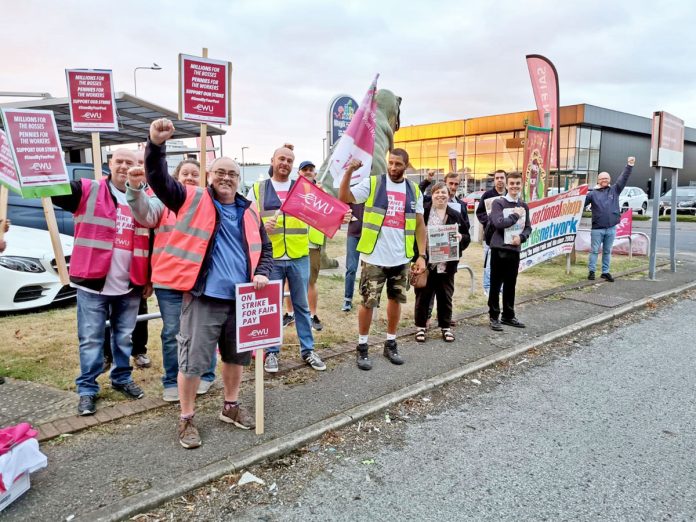We need more than just workers on the board
Dave Gorton, NSSN communications officer (personal capacity)
If pay had kept up with shareholder dividends between 2008 and 2019, the average worker would be £16,400 better off. This is the finding from a new Trades Union Congress (TUC) report ‘Companies for People: How to make business work for workers’.
Since the 2007-08 economic crash, shareholder pay-outs have soared £440 billion above inflation, while wages have grown £510 billion less than inflation. The share of profits allocated to dividends, rather than reinvestment or salaries, rapidly increased from 16% in 1987 to 52% in 2018. It fell during the pandemic but is now rising sharply again, reaching 41% last year.
Royal Mail claims postal strikes are costing it £1 million a day, and plans job cuts to offset the ‘losses’, but they have already paid out over £330 million this year to shareholders!
UK energy retailers have paid shareholders more than £23 billion in the last ten years. The UK’s largest train operator, FirstGroup, handed its shareholders £500 million in December 2021.
It’s clear that not all are suffering. Median chief executive pay is up on pre-pandemic levels. The pay of the CEOs of Britain’s biggest companies surged by 39% in the aftermath of the Covid-19 pandemic. Median pay for a FTSE 100 CEO increased from £2.46 million in 2020 to £3.41 million in 2021, 109 times the median UK full-time worker.
Unfortunately, the TUC’s response is woefully inadequate. It calls for a modernisation of company law “so that boardrooms serve the interests of all stakeholders in how they manage the firm, and so they are required to focus on long-term company success as their primary aim”.
The primary aim of capitalist bosses is maintaining or boosting profits, typically by driving down workers’ pay, terms and conditions. The interests of workers and the capitalist bosses are at odds!
The TUC puts forward “a requirement for elected worker directors to comprise one-third of the board at companies with more than 250 staff”, failing to explain how having a minority of seats on a board would persuade bosses to forego profits in favour of pay rises.
Demands for stronger pay bargaining rights and making businesses responsible for employment rights in their supply chain are laudable. A primary way of achieving this is through workers collectively organising in their trade unions.
But the TUC should be arguing for the policies of its member unions. The Communication Workers Union has policies calling for renationalisation of Royal Mail and BT, and transport union RMT calls for renationalisation of the railways.
Nationalisation would take the ownership of these companies out of the hands of the bosses, to be run democratically by the working class, including elected representatives of the workers in the industries themselves.
This is the way to ensure services can be run genuinely in the interests of workers and service users. And a crucial step in ending the further obscene accumulation of wealth by the already rich.







